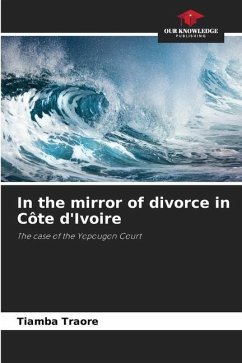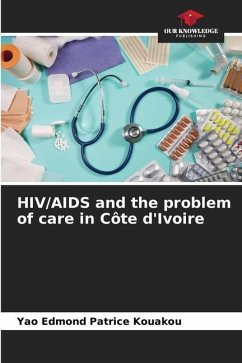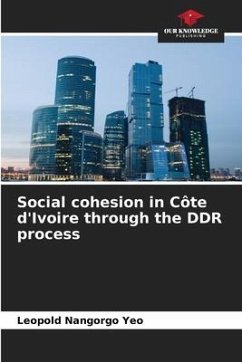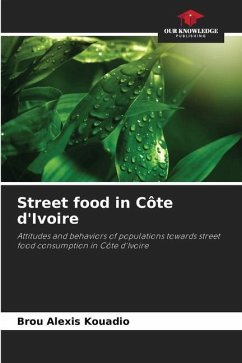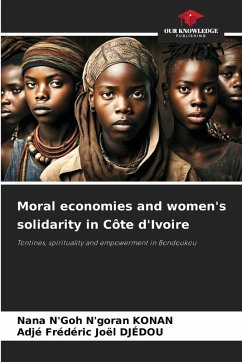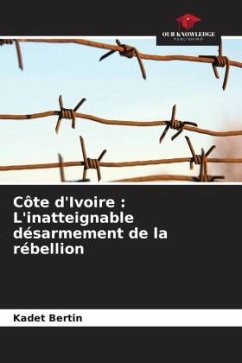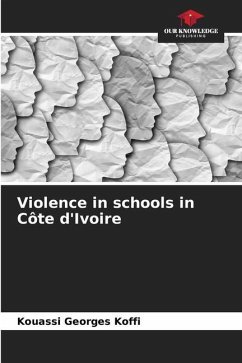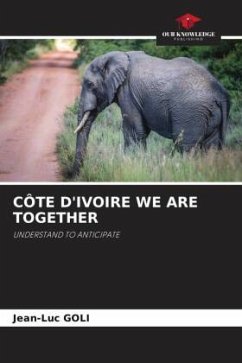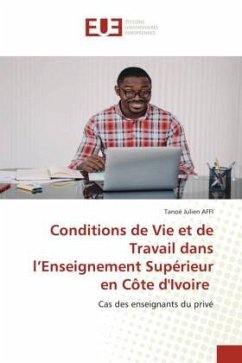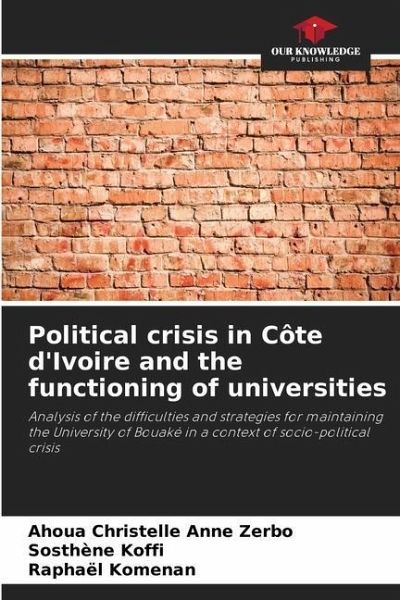
Political crisis in Côte d'Ivoire and the functioning of universities
Analysis of the difficulties and strategies for maintaining the University of Bouaké in a context of socio-political crisis
Versandkostenfrei!
Versandfertig in 6-10 Tagen
18,99 €
inkl. MwSt.

PAYBACK Punkte
9 °P sammeln!
In Côte d'Ivoire, the armed conflict of 2002 had many consequences, both human and material, in the Central North West (CNW) areas of the country. The city of Bouaké, located in the center of the country, was the site of several clashes that led to the massive displacement of the population and the closure of many services, including the university. This study aims to understand, through qualitative research, the mechanisms developed to maintain the teaching and even the functioning of the structure during this socio-political crisis. The survey consisted of 72 individual interviews with int...
In Côte d'Ivoire, the armed conflict of 2002 had many consequences, both human and material, in the Central North West (CNW) areas of the country. The city of Bouaké, located in the center of the country, was the site of several clashes that led to the massive displacement of the population and the closure of many services, including the university. This study aims to understand, through qualitative research, the mechanisms developed to maintain the teaching and even the functioning of the structure during this socio-political crisis. The survey consisted of 72 individual interviews with internal and external actors of the institution and 04 focus groups with students. The results show that the relocation of the university to Abidjan was the main strategy. Also, the forms of collective mobilization, through the relocation committee, made it possible to obtain premises, reconstitute the archives and obtain the support of certain partners. Key words: armed conflict, maintenance strategy, higher education, relocation, functioning, socio-political crisis, university, change.



